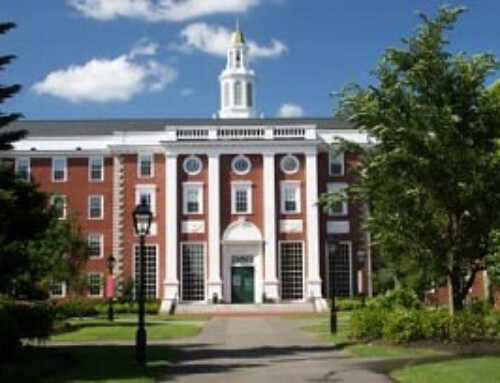 Curious about what it really takes to get into Harvard Business School? In this exclusive interview, we sit down with Shira Amit, a current Harvard MBA student, to explore her application journey, student life in Boston, and what surprised her most about HBS. Whether you’re just starting your MBA admissions process or preparing for interviews, Shira’s insights offer real-world advice and inspiration.
Curious about what it really takes to get into Harvard Business School? In this exclusive interview, we sit down with Shira Amit, a current Harvard MBA student, to explore her application journey, student life in Boston, and what surprised her most about HBS. Whether you’re just starting your MBA admissions process or preparing for interviews, Shira’s insights offer real-world advice and inspiration.
Thinking of applying to a top MBA program like Harvard, Stanford, or Wharton?
Register now for a free MBA admissions consultation with ARINGO MBA Admissions Consulting and get personalized feedback on your chances.
1. What surprised you most about the MBA academic experience at Harvard Business School (HBS)?
The level of preparation required during the first semester was significantly higher than I expected—each case could take 1–2 hours just to understand and prepare answers to the discussion questions. I was also amazed by how effective the learning model is, and how skilled our professors are—they can lead us to clear takeaways despite speaking for only 5% of the class time. Overall, the structure encourages deep engagement and peer learning. By the second semester, the academic pace becomes more manageable, as you know what’s expected of you. You dive deep into a lot of information across many topics, most of which you obviously won’t remember in 10 years. I think the goal is to learn enough to remember how to ask the right questions in the future, even after the technical details fade.
2. How does the HBS case method work, and how has it shaped the way you learn?
The case method is fundamentally about learning through decision-making. You’re not just absorbing information—you’re actively taking a position, defending it, and learning from the diverse perspectives in the room. This structure helps internalize concepts much more deeply than traditional lectures. It also exposes you to industries and roles you might never otherwise encounter. One of the biggest takeaways for me has been realizing how many different ways there are to be “smart.” Some people are incredibly analytical, others are strategic, and some excel at storytelling or emotional intelligence. Participating in class discussions can feel overwhelming at first, but over time you develop a stronger sense of how to make your point clear and relevant, and that becomes a valuable communication skill in itself.
3. Which HBS course or professor has had the biggest impact on you so far, and why?
Leadership and Corporate Accountability (LCA) has been one of the most influential courses for me. The class focuses on navigating moral and legal dilemmas in leadership, which often don’t have clear right or wrong answers. What stood out is how much the course encourages students to define and defend their values, even in complex or unpopular situations.
4. What does class preparation at HBS look like? Do students follow any common study routines or group practices?
In the first semester, preparation is fairly structured. Most students spend 1–2 hours per case, reading thoroughly and preparing answers to the discussion questions. Daily discussion groups are common and serve as a helpful way to clarify your thinking before walking into the classroom. In the second semester, prep becomes more efficient, because you already know what to look for in a dense case. The approach shifts from mastering the material to identifying what’s most relevant and ensuring you’re prepared to contribute meaningfully in class.
5. How has attending Harvard Business School influenced your career goals or aspirations?
HBS has broadened how I think about risk and impact. Before coming here, I was more focused on figuring out what I wanted to do next. But being in this environment has made me more comfortable with long-term career strategizing—choosing roles not just for what they are today, but for how they help me build toward the future I want. I’ve shifted toward seeking roles at startups that have higher risk but also the potential for outsized impact.
6. How has your view of leadership changed since starting your MBA at HBS?
Before HBS, I thought of leadership primarily as a personal achievement—you do well, you’re trusted with more responsibility. HBS was the first time I heard the term “leader as servant.” Now I think of leadership less as individual success and more as the ability to effectively create the conditions for others to succeed.
7. What’s the best piece of career advice you’ve received at HBS?
One line that’s stayed with me is: most people overestimate what they’ll lose if they fail, and underestimate what they’ll gain if they act. It reframes risk in a powerful way. We tend to focus on the downside of taking action—especially when leaving a stable path—but we often forget that inaction carries a cost, too. That advice has pushed me to be more intentional about taking risks aligned with my long-term goals, even if they feel uncomfortable in the short term.
8. What does a typical week in the life of an HBS student look like outside the classroom?
A typical week at HBS is full—sometimes overwhelmingly so. In addition to classes, many students take on leadership roles in clubs, attend guest speaker events, participate in recruiting activities, and engage in social or cultural programming. Personally, I’ve been involved in the Tech Club leadership, performed in a student-run musical production, volunteered at a senior home, and attended many on-campus talks and social events. It’s a fast-paced environment where you’re constantly choosing between amazing opportunities, and managing energy becomes just as important as managing time.
9. How would you describe the culture at Harvard Business School—competitive, collaborative, or something else?
The culture is much more collaborative than I expected. There’s a strong norm of sharing—whether it’s recruiting resources, internship opportunities, or exam notes. Part of this is structural: most classes are non-graded or curved in a way that discourages direct academic competition. It’s also important to note that each section—your group of 90 classmates with whom you take all first-year classes—develops its own micro-culture. While most are collaborative, the specific dynamics can vary. For me, the section experience played a huge role in shaping my sense of community here.
10. What are some memorable HBS student traditions or social events that stood out to you?
Several traditions have stood out as memorable parts of the HBS experience. Flag Day, where students represent their national backgrounds and celebrate global diversity, is one of the most energizing events of the year. Section retreats help set the tone for community building early on and often lead to lasting friendships. The HBS Show and Cabaret are also major highlights—completely student-run and showcasing an impressive range of talent, humor, and creativity. These events create meaningful connections outside the classroom and are an essential part of the experience.
11. How do MBA students at HBS build deep friendships in such a fast-paced and ambitious environment?
In such a large and dynamic environment, building close relationships often starts with shared structures—sections, clubs, and small group projects. But true depth comes from vulnerability. While many people arrive with networking in mind, most are ultimately looking for meaningful, long-term friendships. The people I’ve gotten closest to are those I’ve been able to be open and honest with, whether in formal settings or late-night conversations after events. Finding your community takes time, but it’s very possible—and deeply rewarding—once you do.
12. Can you share one non-academic HBS experience that had a meaningful impact on you?
One of the most meaningful experiences I’ve had was giving a MyTake—a student-led talk series where individuals share personal stories and insights with their classmates. I spent a long time thinking about what I wanted to say and eventually decided to speak about what it means to be different—both in personality and identity. Preparing and delivering that talk pushed me to be vulnerable in a way I hadn’t expected, and the response I received reminded me of how open and supportive the HBS community can be when you show up authentically.
13. In hindsight, what do you think made your Harvard Business School application stand out?
I believe what made my application stand out was authenticity. I didn’t try to guess what HBS wanted to hear—I focused on presenting a consistent and honest picture of who I am, what I care about, and how I think. During the interview, I made sure to bring energy and engagement. I also asked my recommenders to speak not just to my accomplishments but to my values and working style, which helped create a more complete view of me as a person—not just a résumé.
14. What advice would you give prospective HBS applicants who are unsure if the program is right for them?
The external reputation of HBS can feel intimidating or unapproachable, but the lived experience is very different. I was worried I’d be surrounded by arrogance and formality, but what I found was a diverse and kind group of peers who are genuinely curious and grounded. If you’re unsure, I highly recommend reaching out to current students. Most are very open to sharing their honest perspective, and those conversations can really help clarify whether this environment aligns with what you’re looking for.
15. Is there anything you wish you had known before starting your MBA at HBS?
If you plan to stay in tech, it’s worth knowing that the MBA credential doesn’t carry as much weight in some parts of the industry as it does in others. That doesn’t mean it isn’t valuable—but you need to be thoughtful about how you position it. I also came in wondering if I might be too early in my career after seven years of experience, but I’ve since realized that coming earlier gives you more runway to apply what you learn—and that I was actually on the more experienced side of the curve. Finally, expect to feel disoriented at some point—especially during the first semester. It’s intense, and you may temporarily lose your sense of direction. But that process is part of the growth, and it ultimately leads to much greater clarity about what matters to you.
16. How would you describe your personal growth since beginning your MBA at Harvard?
My experience at HBS has helped me develop greater self-belief. Being surrounded by people doing impressive things could easily be intimidating, but instead, it’s been motivating. It’s also pushed me to explore areas far beyond my tech background—I’ve learned about industries, topics, and roles I wouldn’t have encountered otherwise. That kind of exposure reshapes how you think about your potential. I also went through a period of complete overwhelm in the first semester, but that pressure ultimately helped me understand my limits, clarify my priorities, and rebuild a more grounded sense of self.
17. Who is not a good fit for HBS? What type of student should reconsider applying?
If you’re not interested in consistently studying or engaging with material five days a week, this might not be the right fit. The academic workload, especially in the first year, is significantly more demanding than in many other MBA programs. I’d also caution against applying primarily for the brand. The degree does pay off in the long run, but the experience itself demands real investment—intellectually, socially, and emotionally. It’s most rewarding for people who are here to grow, not just to coast on a name.
Planning to apply to top MBA programs such as Columbia Business School, Chicago Booth or MIT Sloan? Get expert advice tailored to your profile—sign up for a free consultation with ARINGO MBA Admissions Consulting and find out how to strengthen your application.



